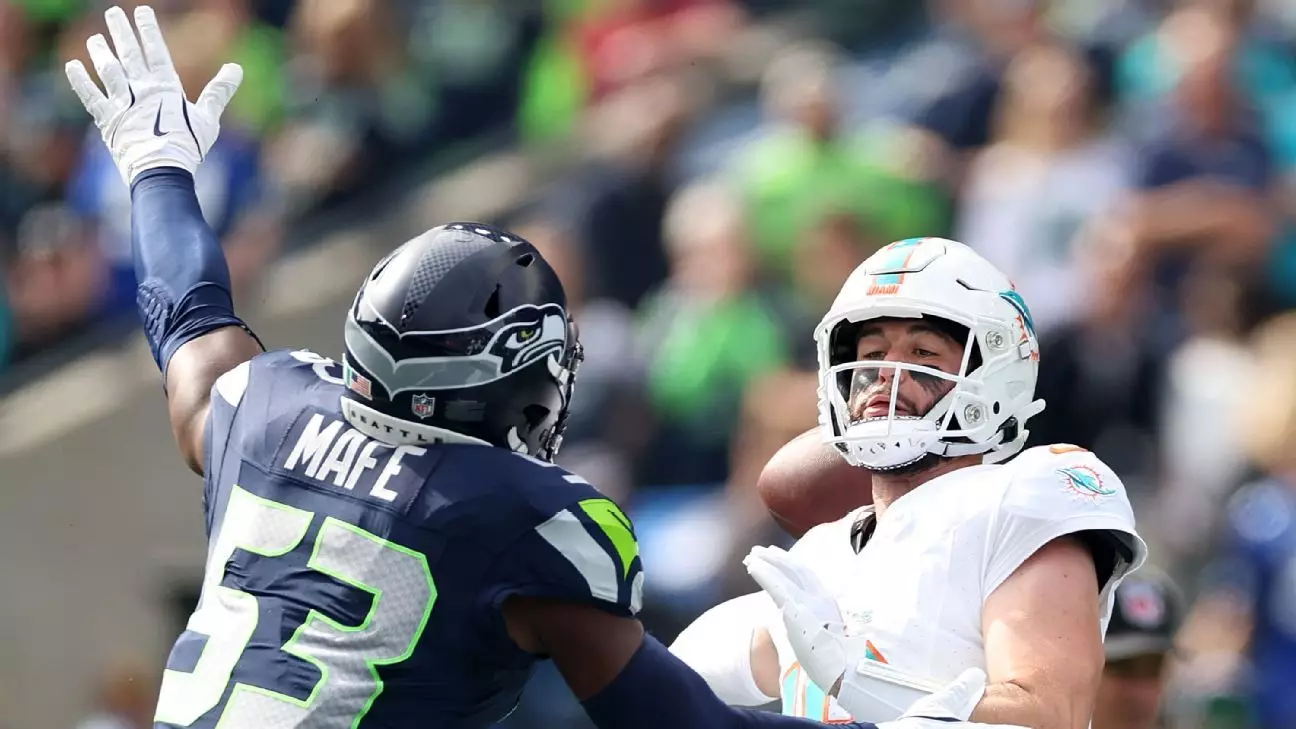The Miami Dolphins faced a challenging matchup against the Seattle Seahawks, enduring a disappointing 24-3 defeat. The pressure on the team increased significantly when starting quarterback Skylar Thompson was ruled out due to a chest injury sustained in the second half of the game. This incident raised alarm bells, not only for the outcome of the week’s game but also for the broader implications for the Dolphins’ season moving forward.
Thompson, having earned the starting job due to Tua Tagovailoa’s ongoing recovery from a concussion, was poised to make an impact as he stepped into the spotlight for only his fourth career start. Unfortunately, his performance was abruptly halted after he was hit hard during the third quarter. Prior to his exit, he had managed to complete 13 of 19 passes, accumulating 107 yards. It was an encouraging start, but the physical toll of the NFL was palpable as he faced a formidable Seattle defense.
With Thompson sidelined, the Dolphins’ strategy was thrown into disarray. Third-string quarterback Tim Boyle stepped in as the replacement. Boyle’s lack of preparation time and experience under high-stakes circumstances only added to the team’s struggles. This shift highlights a significant challenge for the Dolphins: depth at the quarterback position was already a concern, and the unpredictable nature of injuries can derail even the most prepared teams.
The setback with Thompson compounds the challenges already posed by Tagovailoa’s absence, as the Dolphins will need to manage their playoff aspirations while ensuring that both quarterbacks return to health. Tagovailoa is slated to miss at least three more games, with NFL guidelines enforcing a minimum of four games on injured reserve for any player. Coach Mike McDaniel’s insistence on prioritizing Tagovailoa’s health over a predetermined return date reflects a prudent approach in safeguarding the player’s long-term wellbeing.
The ramifications of these injuries extend beyond the quarterback position. With cornerback Kendall Fuller and left tackle Terron Armstead also leaving the game due to injuries, the Dolphins faced immense pressure on both sides of the ball. The cumulative effect of losing key starters not only disrupts the team’s immediate gameplay but also erodes overall confidence on the field.
As the Dolphins navigate their way through a season clouded with injuries, the upcoming weeks will be pivotal. They must foster resilience while relying on less experienced players who will be pressed into action. The need for strategic adjustments cannot be overstated as the team prepares for upcoming games. This will include enhancing practices to ensure that Boyle and any upcoming quarterbacks can adapt to the fast-paced NFL environment.
Ultimately, the Miami Dolphins face a defining moment reliant on recovery and adaptation. The management of their injuries, especially at the quarterback position, will be instrumental in determining the trajectory of their season. For fans and analysts alike, monitoring how the Dolphins respond to this adversity will be crucial as they fight to remain competitive in an unforgiving league.


Leave a Reply